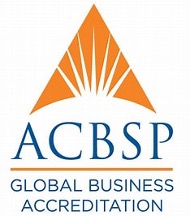School of Business and Entrepreneurship

Home » Division of Academic Affairs » School of Business and Entrepreneurship
University Mission
Voorhees University is a private historically black liberal arts institution affiliated with the Episcopal Church, whose mission is to produce highly qualified graduates who coalesce intellect and faith in pursuit of life-long learning, healthy living, the betterment of society, and an abiding faith in God.
School of Business and Entrepreneurship
Mission
The Voorhees University School of Business and Entrepreneurship aims to educate students in business competencies through innovative and experiential learning-based programs. It provides high-quality, transformative education in partnerships with businesses throughout the United States to prepare students to be successful, ethical, and socially responsible leaders, professionals, and entrepreneurs.
Vision
The Vision of Voorhees University School of Business and Entrepreneurship is to promote social mobility by preparing diverse, innovative, and globally aware leaders, professionals, and entrepreneurs.
ACBSP Accreditation Statement

Voorhees University’s Business School programs are accredited by the Accreditation Council for Business Schools & Programs (ACBSP). Contact the Accreditation Council for Business Schools & Programs (ACBSP) at 11520 West 119th Street, Overland Park, KS 66213 or call 913-339-9356 for questions about the accreditation of Voorhees University’s Business School. Accreditation Council for Business Schools and Programs
Learning Outcomes:
- Demonstrate an understanding and the application of the concepts of sustainable entrepreneurship.
- Evaluate and articulate the rewards and risks of undertaking of a new venture and measuring and comparing the short-term economic risks and returns of the venture with the long-term expected benefits.
- Demonstrate knowledge of problems facing local and global communities as well as the ability to recognize business opportunities for entrepreneurs that arise as a result of the trend of identifying and resolving those problems.
A concentration in Small Business and Entrepreneurship requires:
- 44 credit hours of course work in general education
- 58 credit hours of course work in business core requirements
- 19 credit hours in Entrepreneurship requirements
- 3 credit hours of electives (includes 3 Entrepreneurship electives)
Total required hours: 124
Learning Outcomes:
- Students will demonstrate an understanding of the importance of the impact of globalization and diversity in modern organizations.
- Students will evaluate real-world problems and projects by utilizing skills needed for customer development, customer validation, and competitive analysis.
- Students will demonstrate an ability to engage in critical thinking by analyzing situations and constructing and selecting viable solutions to solve problems.
- Students will demonstrate the ability to analyze and predict future economic activity relevant to social policy and business decision making.
- Students will demonstrate the ability to discuss the ethical issues inherent in rapid changes in business, including information technology and environmental degradation domestically and globally.
- Students will demonstrate the ability to understand and expound on the need of statistics while being able to identify various methods of obtaining samples of data.
A concentration in General Business requires:
- 44 credit hours of course work in general education.
- 59 credit hours of course work in business core requirements.
- 18 credit hours in general business requirements.
- 3 credit hours of electives
Total required hours: 124
Learning Outcomes:
- Evaluate the economic impacts of tourism on a variation of destination types.
- Develop a tourism plan for the implementation of selected strategies to maximize the positive effects of tourism on a destination.
- Identify and select appropriate strategies to minimize the negative impact of tourism on the environment in a variety of destinations.
A major in Hospitality and Tourism Management requires:
- 44 credit hours of course work in general education
- 36 credit hours of course work in business core requirements
- 39 credit hours in hospitality and tourism management requirements
Total required hours: 121
Learning Outcomes:
- Students will understand the importance and role of real estate in local and national economies.
- Students will be able to identify key driving forces of the real estate market.
- Students will be able to analyze real estate investment cash flows and make real estate investment
decisions based on net present value or the internal rate of return. - Students will understand and be able to analyze mortgage contracts taking the perspective as a
borrower, a lender, and an investor. - Students will be able to understand the basic trade-off in debt versus equity finance in real estate.
- Students will be able to understand the basics of securitization and be able to analyze simple
mortgage-backed securitization deals.
A major in concentration in Real Estate requires:
- 44 credit hours of course work in general education
- 50 credit hours of course work in business core requirements
- 27 credit hours in Real Estate requirements
Total required hours: 120
Learning Outcomes:
- Demonstrate effective oral and written communication skills
- Identify, analyze, and compare theories and practices of ethics and professionalism in the
healthcare setting - Demonstrate an understanding of healthcare financial management
- Understand the framework in which healthcare services are produced, coordinated, consumed, and reimbursed
A major in concentration in Healthcare Finance requires:
- 44 credit hours of course work in general education
- 61 credit hours of course work in business core requirements
- 15 credit hours in Real Estate requirements
Total required hours: 120
Learning Outcomes:
- Students will develop the skills to analyze financial data, evaluate investment opportunities, and make informed financial decisions for organizations.
- Students will learn how to identify and assess financial risks, develop strategies to mitigate these risks, and make recommendations to minimize potential losses.
- Students will gain knowledge and skills in creating and managing budgets, forecasting financial performance, and developing financial plans to achieve organizational goals.
- Students will learn about different investment options, portfolio diversification strategies, and how to manage investment portfolios to maximize returns and minimize risks.
- Students will develop analytical skills needed to develop and utilize accounting data, financial data, and other information to solve complex and unstructured business problems.
A concentration in Finance requires:
- 44 credit hours of course work in general education.
- 59 credit hours of course work in business core requirements.
- 15 credit hours in finance requirements
- 3 credit hours of electives
Total required hours: 124
The following sport management degree program has been granted Candidacy Status by the Commission on Sport Management Accreditation (COSMA), located in Fort Collins, CO, USA:
Learning Outcomes:
- Students will display critical thinking skills by applying ethical decision-making frameworks
- Students will apply course knowledge to practical experiences through application and/or reflection
- Students will demonstrate proficiency in writing and communicating sport management content to different audiences
- Students will be prepared for professional success through experiential learning activities
A major in Sports Management requires:
- 44 credit hours of course work in general education
- 56 credit hours of course work in sports management core requirements
- 12 credit hours of required business courses
- 9 credit hours of free electives
Total required hours: 121
The Sports Management major is not accredited by ACBSP
Learning Outcomes:
- Demonstrate the knowledge of account theory, models, practices, and techniques in the areas of general accounting and finance.
- Apply accounting knowledge, models, and practices.
- Utilize technology to identify and integrate accounting information to inform stakeholders.
A major in Accounting requires:
- 44 credit hours of course work in general education
- 50 credit hours of course work in business core requirements
- 24 credit hours in accounting requirements
- 3 credit hours of electives
Total required hours: 121
Learning Outcomes:
- Analyze organizational processes and procedures in a variety of business settings.
- Evaluate information management, planning, operations, and control in business environments.
- Assess the roles of structure, management, and leadership in organizational performance.
- Understand how economics, government, and law affect value creation in the global context.
- Evaluate the role of accounting, finance, and marketing within the larger organizational structure.
A major in Organizational Management requires:
- 36 credit hours of course work in general education
- 51 credit hours of course work in Organizational Management core requirements
- 33 credit hours of electives
Total required hours: 120
Online Degree Offerings
Become a Voorhees University Tiger!
Because of our flexible schedule and online format, Voorhees University makes it possible for you to earn your degree outside of the traditional college experience. Our online courses serve all types of students whether it be adult students pursuing their degrees later in life, students currently serving in the military or their dependents, or new students entering college for the first time who just enjoy the online learning environment. We even provide the opportunity to earn prior learning credit for past military service and professional work experiences.
Choose From Our Many Online College Degree Programs
- Bachelor of Science degree in Accounting
- Bachelor of Science degree in Business Administration
- Bachelor of Science degree in Organizational Management
- Hospitality and Tourism Management
- Sports Management
- Certificate in Entrepreneurship and Small Business (ESB)
- Certificate in Organizational Management (COM)
- Bachelor of Science degree in Accounting
- Bachelor of Science degree in Business Administration
- Bachelor of Science degree in Organizational Management
- Hospitality and Tourism Management
- Sports Management
Online Certificate Programs at Voorhees University
- Certificate in Entrepreneurship and Small Business (ESB)
- Certificate in Organizational Management (COM)
Business and Entrepreneurship Faculty

Katherine R. Whitaker, DBA
Dean, School of Business and Entrepreneurship
Office Location: St. James Building
Room: #133
Office Number: 803.780.1069
Area of Specialty: Management
kwhitaker@voorhees.edu

Chandra Singh, Ph.D.
Professor of Economics
Office Location: St. James Building
Room #:
Office Number: 803.780.1093
Area of Specialty: Economics
csingh@voorhees.edu

James Ross, DBA
Assistant Professor of Finance/General Business
Office Location: St. James Building
Room #: 124
Office Number: 803.780.1087
Area of Specialty: Finance/ General Management
jross@voorhees.edu

Calvin T. Williams, DBA
Program Coordinator/
Assistant Professor and Program Coordinator Sports Management
Office Location: Bedford Hall
Room: #2
Office Number: 803.780.1068
Area of Specialty: Sports Management/Management
Sport Management/Strategic Leadership & Innovation
calwilliams@voorhees.edu

Marcus Amos, Ph.D.
Assistant Professor of Sports Management
Office Location: Bedford Hall
Room #: 3
Office Number: 803.780.1044
Area of Specialty: Sports Management
mamos@voorhees.edu

Ravin Gore-Overby, Ph.D.
Assistant Professor of General Business
Area of Specialty: General Business
roverby@voorhees.edu

Jeremy Heyward, CPT
Coordinator, Reserve Officers' Training Corps (ROTC)
Academic Affairs
St. James Building
Room:
(803) 780-1090
jheyward@voorhees.edu

Alicia Davis, Ed.S.
Assistant Professor of Accounting
Office Location: St. James Building
Room #: 132
Area of Specialty: Accounting
adavis@voorhees.edu

Norman O’Neal, MS
Instructor of Sports Management
Instructor of Sports Management
Area of Specialty: Sports Management
noneal@voorhees.edu

Lena Pinkston, MA
Assistant Instructor of General Business
Office Location: St. James Building
Room: 222
Office Number: 803-780-1147
lpinkston@voorhees.edu
- Diamond Bullard – President
- Ja’Myah Haynes – Vice President
- Kendra Paul – Secretary
- Ajah Darville – Social Media Manager
- Janae Nicholas – Social Media Manager
- Ahmad Parker – Project Manager/Treasurer
- Terrinique Cooper – Fundraising Manager
- Michael Ramos
- Taycerria Dunbar-Jackson
- Kahli Gallman
- Justin Bamberg
- Joy Campbell
- Kia Smith
- Steven Barge
- Takecia Clayton
- Yolanda Mills
- Mayor Marcus Rivera
- Kevin Gadsden
- Karriema Calhoun
- Diamond Bullard, Student Liaison

